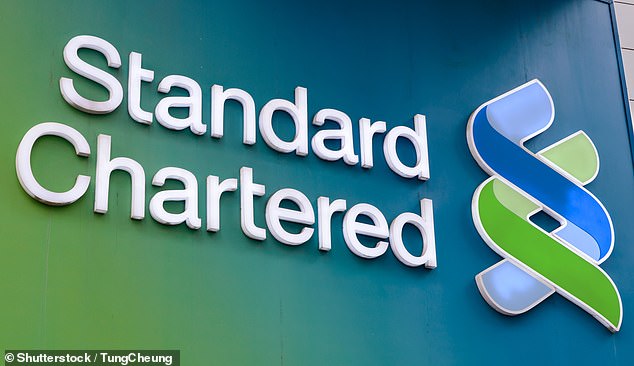Standard Chartered Bank is facing a £300 million High Court battle after losing a key legal fight over allegations that it broke US sanctions on an ‘industrial scale’.
The bank – Britain’s fifth largest – is being sued by more than 200 investors who claim it made misleading or untrue statements about breaking US sanctions between 2007 and 2019. The claims by investors will amount to at least £286 million, the court heard.
The cases in the US and UK will focus on the bank’s network of Iranian clients and their links to the Tehran regime, the Islamic Revolutionary Guard Corps and its network of terror groups.
Separately, along with a raft of international banks including HSBC, Standard is facing at least 11 cases in the US brought by the families of dead military personnel over claims that it helped to streamline attacks in Iraq and Afghanistan.
In the latest High Court development, Mr Justice Michael Green has ruled that submissions from British bank executive turned whistleblower Julian Knight can be admitted. Standard had tried to have Knight’s evidence – pointing to it having broken sanctions against Iran on an ‘industrial-scale’ – thrown out.

Allegations: Standard Chartered is being sued by more than 200 investors who claim it made misleading or untrue statements about breaking US sanctions
But the evaluate ruled last month that the cases by investors could go ahead, stating that evidence from Knight showed ‘specific and detailed knowledge’.
US lawyer Gary Osen, who represents families bringing several cases against the bank, believes Standard could be facing damages of ‘several billions of dollars’ if it loses the cases which have yet to come to trial.
Standard was fined by the US authorities a total of £1.6 billion in 2012 and 2019 for breaching US sanctions relating to Iranian, Sudanese and Cuban individuals and entities between 2001 and 2014.
In 2019, it was fined £102 million by the UK’s Financial Conduct Authority for anti-money laundering breaches that included ‘shortcomings’ in its counter-terrorism controls in the Middle East.
As part of its US deferred prosecution agreement in 2012, Standard said it would not ‘knowingly’ deal with ‘any person or entity, resident or operating’ in Iran or for that nation. Investors claim that the bank failed to disclose the full extent of its dealings after this cut-off.
Knight supplied bank data to US regulators and lawyers that showed the bank was still dealing with Iranian entities. His US legal action has been thrown out on technical grounds and he is now appealing.
Standard said: ‘We regard this claim as being without merit and will continue to vigorously defend the allegations.’



